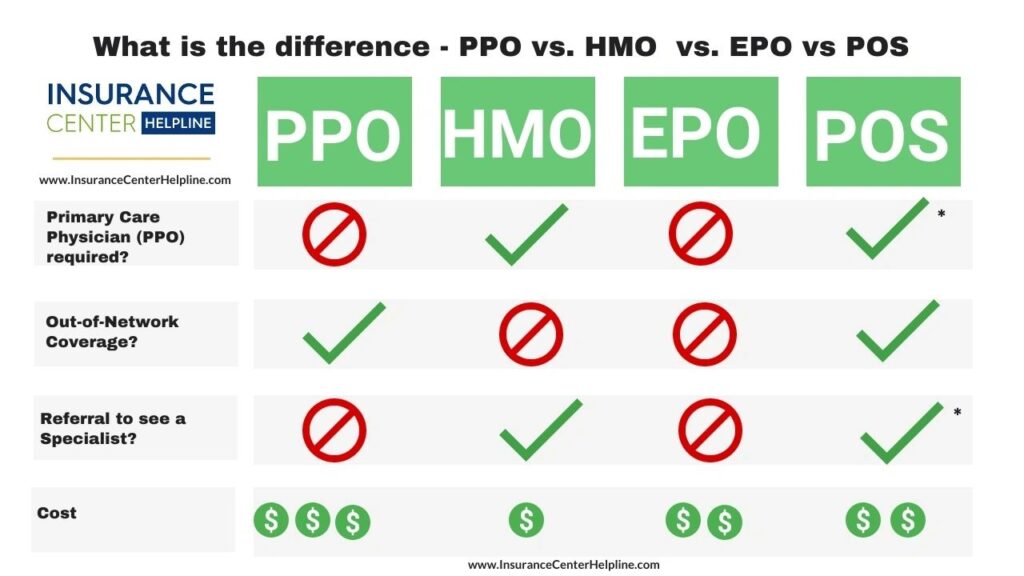The Difference Between HMO, PPO, and EPO Health Plans

When selecting a health insurance plan, understanding the differences between HMO, PPO, and EPO plans can help you make an informed decision. In this article, we will explore the key differences between these three types of health plans.
HMO (Health Maintenance Organization) Plans
- Network-based: HMO plans require you to receive medical care from a specific network of providers.
- Primary Care Physician (PCP): You typically need to choose a PCP, who coordinates your care and refers you to specialists.
- Referrals: You may need a referral from your PCP to see a specialist.
- Out-of-network care: Generally not covered, except in emergency situations.
PPO (Preferred Provider Organization) Plans
- Network-based: PPO plans offer a network of preferred providers, but you can see out-of-network providers at a higher cost.
- No PCP required: You don’t need to choose a PCP or get referrals to see specialists.
- More flexibility: PPO plans offer more flexibility in choosing healthcare providers.
- Higher out-of-pocket costs: You may pay more for out-of-network care.
EPO (Exclusive Provider Organization) Plans
- Network-based: EPO plans require you to receive medical care from a specific network of providers.
- No out-of-network care: Except in emergency situations, out-of-network care is not covered.
- No PCP required: You don’t need to choose a PCP or get referrals to see specialists.
- Balance between HMO and PPO: EPO plans offer a balance between the structure of HMO plans and the flexibility of PPO plans.
Comparison of HMO, PPO, and EPO Plans
| Plan | Network | PCP Required | Out-of-Network Care | Flexibility |
|---|---|---|---|---|
| HMO | Specific network | Yes | Generally not covered | Limited |
| PPO | Preferred network | No | Covered at higher cost | More flexible |
| EPO | Specific network | No | Not covered (except emergencies) | Balanced |
Choosing the Right Plan
When choosing between HMO, PPO, and EPO plans, consider your:
- Healthcare needs: Think about your medical needs and whether you require specialized care.
- Budget: Consider the premium costs, deductibles, and out-of-pocket expenses.
- Provider network: Ensure the plan’s network includes your preferred healthcare providers.
Conclusion
Understanding the differences between HMO, PPO, and EPO health plans can help you make an informed decision about your healthcare coverage. Consider your needs, budget, and provider network when choosing a plan.
FAQs
- What is the main difference between HMO and PPO plans?
- HMO plans require you to stay within a specific network, while PPO plans offer more flexibility.
- Do I need a PCP with an EPO plan?
- No, EPO plans do not require you to choose a PCP.
- Can I see out-of-network providers with an HMO plan?
- Generally not, except in emergency situations.
- Which plan offers more flexibility, PPO or EPO?
- PPO plans offer more flexibility, as you can see out-of-network providers at a higher cost.